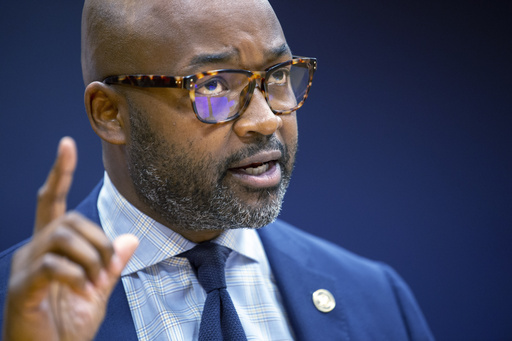Louisiana legislators in a fiery Senate hearing at the state capitol questioned New Orleans District Attorney Jason Williams regarding his reform policies that have led to the voiding of several hundred convictions or reductions in sentences over the past few years. Conservative lawmakers, along with Republican Attorney General Liz Murrill and former prosecutors, criticized Williams for what they perceived as a failure to uphold convictions in violent crime cases. They pointed out instances where convicted murderers and rapists were released through post-conviction relief processes.
Williams, a Democrat elected in 2020 on a progressive platform, defended his actions by stating that his office aims to restore trust in the legal system. He advocated for expanding the use of post-conviction relief to review cases where unconstitutional or unjust procedures may have influenced convictions. Murrill expressed concerns over what she called a disproportionately high number of relief cases granted by Williams’ office compared to neighboring districts since January.
Williams and his supporters argued that New Orleans has a history of police and prosecutorial misconduct, leading to an increase in these cases. Murrill emphasized the district attorney’s obligation to uphold convictions and suggested that disagreements over policy should not be a basis for relief. A new law now requires Williams’ office to inform the attorney general of post-conviction relief cases and allow her to intervene.
Some lawmakers viewed the hearing as a way to assess whether Williams had overreached in his actions, with potential legislative responses being considered. Critics raised concerns about instances where relief was granted without legal basis, such as a case involving a convicted child killer who had his conviction voided earlier this year. Williams clarified that his office opposed releasing the individual and was preparing for a retrial.
There were further discussions during the hearing regarding the transparency of Williams’ decision-making process in granting relief and concerns over potential constitutional violations in certain cases. Williams assured that his office would provide complete records for each post-conviction relief case from the past year to lawmakers and the attorney general to address any concerns about transparency.
Throughout the hearing, Williams maintained that his office’s motives were to allow individuals the opportunity to present new evidence in court and that he believed much of the criticism aimed at the post-conviction relief process was misleading. He vowed transparency and cooperation with legislators and the attorney general moving forward, insisting that his office had nothing to hide.
